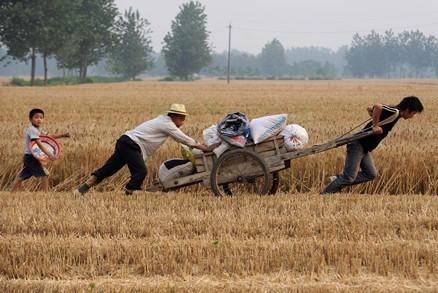In Heilongjiang Province, farmers have been discovered to be illegally growing genetically modified (GM) soybeans, according to several media reports.
The use of GM crops is strictly regulated in the country, and no GM food crops have yet been approved for domestic production.
The northeastern province of Heilongjiang is a key soybean-producing area.
According to an official from the Heilongjiang provincial agricultural department, about 10 percent of the region's soybean farmers are growing GM crops despite the ban.
Local authorities have said that they are investigating the case and that farmers found guilty of growing illegal crops could face a fine of up to 200,000 yuan ($31,480).
These soybeans make it from farmers to companies through middlemen. The companies then process them into cooking oil, tofu and soy milk. It was these middlemen who discovered farmers in the region selling GM crops.
"We previously saw some GM soybeans mixed with other beans [when they would buy beans from groups of farmers]. But when we saw the warehouses [of individual farmers], they were totally filled with GM soybeans," according to a statement from a soybean dealer to the China Business Journal.
According to the dealer, many farmers do not realize it is illegal. The farmers merely plant GM crops to produce greater yields and get higher profits.
Despite being illegal, farmers can get GM soybean seeds from agricultural exhibitions and online, some via online stores like Taobao.com.
GM products have been controversial in many parts of the world.
Many consider GM crops as a way to meet current food requirements, while others see them as "unnatural" and potentially harmful to the environment.
As of now, the Chinese government has only approved seven GM agricultural products, namely tomato, cotton, petunia, sweet pepper and chili pepper, papaya, rice and corn.
The central government has said that GM technologies should be "scientifically expanded."



























